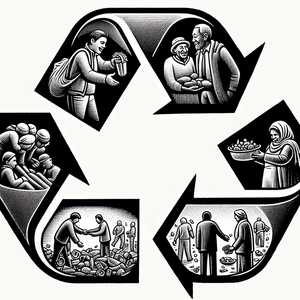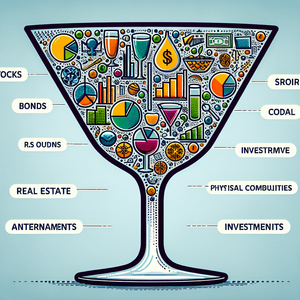The Unseen Battle: Mental Health in UFC Fighters

UFC fighters operate under tremendous pressure to deliver exceptional performances. Each fight represents not only a physical confrontation but also a pivotal moment that can significantly influence a fighter's career trajectory. The stakes are incredibly high, and the constant scrutiny from fans, media, and sponsors can foster an environment rife with anxiety and stress. Anthony Pettis, a former UFC champion, has candidly shared his experiences with anxiety leading up to fights. He revealed that the fear of losing sometimes overshadowed his passion for the sport, creating a vicious cycle of self-doubt and mental strain. This kind of pressure is not unique to Pettis; many fighters experience similar feelings of anxiety and insecurity, which can hinder their performance and overall well-being.
Injuries and Their Psychological Toll
Injuries are an unfortunate and frequent reality in the world of combat sports. For UFC fighters, a significant injury can lead to extended recovery periods, during which feelings of isolation, frustration, and despair can set in. The physical pain can seamlessly transition into emotional distress, culminating in issues like depression and anxiety. Dr. Brian S. Hainline, the NCAA's chief medical officer, underscores the vulnerability of athletes to mental health issues following injuries. He advocates for treating mental health with the same importance as physical health, emphasizing that the recovery process can be mentally taxing. Former UFC heavyweight champion Cain Velasquez has openly discussed his struggles with depression post-injury, highlighting the challenge of finding a new identity outside of fighting. This duality of physical and psychological recovery is critical to understanding the holistic nature of an athlete's health.
Public Scrutiny and Mental Health Stigma
The public eye is unrelenting for UFC fighters, with every action scrutinized by fans and media alike. This constant observation can create an overwhelming pressure to maintain a specific public persona, often deterring fighters from seeking help for their mental health issues due to the stigma surrounding mental illness in athletic circles. Rachael Ostovich, a prominent UFC flyweight, has been vocal about her mental health struggles and the importance of breaking the stigma. She argues that mental health should be treated as a priority within the sport, stating, "We need to talk about it more openly, just like we talk about physical injuries." Her perspective highlights a crucial need for change in the narrative surrounding mental health in combat sports.
The Role of Psychological Support
Recognizing the mental health challenges faced by fighters, some UFC organizations and teams are beginning to prioritize psychological support. Increasingly, UFC teams are incorporating sports psychologists into their staff, providing fighters access to tools that help manage stress, cope with injuries, and navigate the mental challenges of competition. Dr. Michael Gervais, a performance psychologist with experience working alongside elite athletes, emphasizes the need for mental training. He posits that mental resilience is just as essential as physical conditioning. "Fighters need to prepare their minds just as much as their bodies," he asserts. By adopting a holistic approach to training, fighters can develop coping strategies and enhance their overall mental well-being, ultimately leading to improved performance in the octagon.
The mental health challenges faced by UFC fighters are as significant as the physical battles they endure inside the octagon. The pressures of performance, the toll of injuries, and the weight of public scrutiny can lead to a myriad of mental health issues that often remain unseen. As the conversation around mental health continues to evolve, it is imperative for the UFC and the broader sports community to prioritize psychological support for fighters. By fostering an environment where mental health is openly discussed and treated with the same importance as physical health, we can help these athletes not only survive the intense demands of their profession but also thrive both inside and outside of the octagon. The unseen battles of mental health deserve recognition and action, paving the way for a healthier future for all athletes in the UFC.
Sports Psychologist
Professional sports teams, athletic organizations, and universities
Core Responsibilities
Provide psychological assessments and counseling to athletes, focusing on performance enhancement and mental resilience.
Develop tailored mental training programs that address the unique pressures of competitive sports, including anxiety management and coping strategies for injuries.
Collaborate with coaching staff to integrate mental health practices into training regimens.
Required Skills
Advanced degree (Ph.D. or Psy.D.) in psychology with specialization in sports psychology.
Strong understanding of the psychological demands faced by athletes in high-pressure environments like the UFC.
Excellent communication skills and the ability to build rapport with athletes.
Athlete Development Coordinator
Athletic associations, collegiate sports departments, and professional sports teams
Core Responsibilities
Design and implement programs focused on the holistic development of athletes, addressing both physical and mental health.
Organize workshops and seminars on mental health awareness and coping mechanisms for handling performance pressure.
Liaise with sports psychologists and other mental health professionals to provide resources and support for athletes.
Required Skills
Background in sports management, psychology, or a related field.
Experience in program development and a passion for athlete welfare.
Strong organizational and interpersonal skills to foster relationships with athletes and staff.
Performance Coach
Private coaching facilities, sports academies, and professional sports teams
Core Responsibilities
Work with athletes to enhance their mental and physical performance through tailored training programs.
Conduct one-on-one sessions focusing on mental conditioning, visualization techniques, and stress management.
Monitor athlete progress and adjust training plans based on psychological and physical feedback.
Required Skills
Certification in performance coaching or related fields, with experience in sports psychology.
In-depth knowledge of how mental health impacts athletic performance.
Ability to motivate and inspire athletes to achieve their peak performance.
Exercise Physiologist
Rehabilitation clinics, sports teams, and fitness centers
Core Responsibilities
Develop exercise programs tailored to the physical rehabilitation and mental well-being of athletes recovering from injuries.
Monitor athletes' physical responses to training and support their recovery processes through tailored fitness plans.
Educate athletes on the connection between physical fitness and mental health.
Required Skills
Degree in exercise physiology or kinesiology, with additional certifications in rehabilitation.
Understanding of the psychological aspects of injury recovery and mental resilience.
Strong analytical skills to assess and track athletes' progress.
Mental Health Advocate in Sports
Non-profit organizations, sports leagues, and mental health organizations
Core Responsibilities
Raise awareness about mental health issues in athletic communities and promote the importance of mental wellness.
Collaborate with organizations to develop policies and programs that support mental health for athletes.
Conduct outreach and education efforts to reduce stigma surrounding mental health in sports.
Required Skills
Background in psychology, social work, or advocacy with experience in sports environments.
Strong public speaking and communication skills to effectively convey messages to various stakeholders.
Passion for promoting mental health awareness and improving support systems for athletes.


